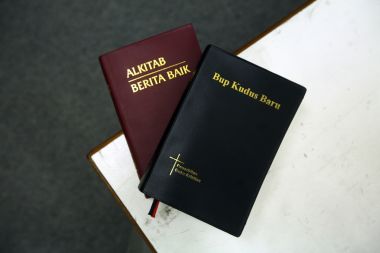Fears of crackdown against Bible Society in Malaysia

As religious tensions increase across the country, the Bible Society of Malaysia could be facing government intervention after receiving notice that it will be investigated by officials tomorrow.
The Malaysia Chronicle reported that a team from the Registry of Society (ROS) will be sent to the Bible Society's office in Selangor on Tuesday. According to the paper, accounts, the membership roll and the minutes of meetings will all be inspected and "the BSM executive council is alarmed that ROS would resort to such high-handedness". It is said to be seeking legal advice.
The Societies Act 1966 states that the ROS has permission to search and inspect any organisation suspected of being used "for purposes prejudicial to public peace, welfare, good order or morality in Malaysia" and can also seize and detain books and accounts. Speaking on condition of anonymity, an official told the Malay Mail Online that there is "nothing suspicious" about tomorrow's meeting. "Every month we run such inspections to about 10 or 15 societies registered under us," he said.
There may be reason for concern, however. Last year, Selangor's Islamic enforcement department seized 321 Bibles from the Malaysian Bible Society because they contained the word "Allah". Non-Muslims are forbidden to refer to God as "Allah" under Malaysian law and in January the Herald in Malaysia, a Catholic newspaper, was denied permission to contravene that legislation after a lengthy court battle.
Religious freedom is protected by the Federal Constitution in Malaysia, but Islam is recognised as the state religion. In April, Muslim demonstrators forced a church in Kuala Lumpur to take down its cross, which was considered to be the latest sign of growing religious tension in the country.
An Islamist party is also lobbying lawmakers to support its move to introduce an Islamic penal code in the northern state of Kelantan that stipulates stoning for adultery and amputation for theft. Malaysia toughened its colonial-era Sedition law earlier this year, which the government had meant to repeal but now says is essential to maintain religious harmony.
Critics accuse the government of using the law to crack down on opposition politicians, journalists, academics and activists.
Additional reporting by Reuters











